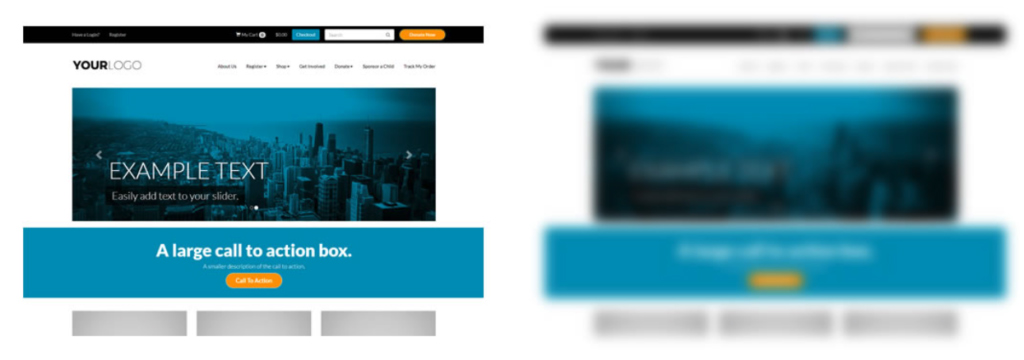Nonprofit Technology & Fundraising Blog
Subscribe to our mailing list
December 17, 2019 |

Well – now’s your time to shine.
I’m going to share secrets the pros use when building a great website – no tech-talk needed. With these 3 simple tests, you can ensure your nonprofit website performs well all year round.
Internet users have a very short attention span. That’s why it’s so important that you make sure your website’s landing page tells your story clearly and quickly. If they feel they’ve landed on the wrong site, or that the content on the page is not relevant to them, they’ll leave immediately.
You’ve got about eight seconds to explain to your visitor exactly what your charity does before they leave your site. Some studies show that your first-impression window can be as quick as 5 to 6 seconds.
How does your website stack up? Ask a friend or someone outside your organization to take a look at your website. After eight seconds, turn off the screen. Ask them to explain what your organization does.
There are a couple things you can do to improve how well you communicate your mission on your home page.
Try these tips:
The clearer your ‘Donate’ button is, the more likely it is that people will convert.
How can you be sure your ‘Donate’ button is clear to everyone? The blur test.
The blur test is a popular technique web designers use to determine how easy it is to see important elements of a website. In your case, that’s the ‘Donate’ button.
Here’s how it works: Look at your website. Then, squint your eyes (or in my case, take off your glasses). You should see a blurry image of your website. If your ‘Give’ button is implemented correctly, it should still jump out even when your page is difficult to view.
Here’s what I mean:

In this example, you can see that once you blur your vision, most of the elements on the page blend together. However, the two yellow ‘Donate’ buttons still stand out well.
There’s also the ten-foot test. Instead of blurring your vision, take a couple steps back from your computer and judge how well your donate button appears.
Try these tips:
Many organizations focus so much on creating a great website but neglect to realize how long it takes for their website to load all those videos and high-quality content.
(This is especially common with websites built on open source platforms (think WordPress, Drupal, Joomla, etc) where the author is not fully aware of how their updates are impacting the loading time of the site.)
Why does your load time matter? Remember test number one? You only have roughly eight seconds to share your story. If your page takes eight seconds to load, it is very likely you’ll lose a good number of visitors.
Keep in mind that some of your donors have unreliable internet connections – spotty reception, slower 3G connections and so on. It’s important that your site loads well for devices that don’t have the best connection.
There are plenty of free online tools you can use to test how well your website loads. We like Pingdom.com’s speed test tool. You enter your website address and it will rank your site’s performance.
If you get a low grade, the test should show you how you can improve your site’s speed.
Try these tips:
About the Author
Josh Bloomfield is a self-taught programmer turned entrepreneur. After helping found multiple enterprise-level software companies, he used his passion and expertise to help nonprofits all over the world. He’s now the founder at GiveCloud.co – a tool where charities can build their brand and do all their fundraising in one place so they can spend more time and money on their mission, and less on administration. Josh lives in Ottawa, Canada with Chelsea, his wife of 12 years, and two beautiful daughters, Poppy and Pennylane.
Follow us on social!